Remembering John Mayall, the Godfather of British Blues
An architect of the '60s British Blues Boom left a legacy that's rocked generations.
Eric Clapton, Mick Taylor, Peter Green, Jack Bruce, John McVie, Mick Fleetwood, Mickey Waller, Aynsley Dunbar, Andy Fraser, Harvey Mandel, Coco Montoya, Walter Trout, Rick Vito, Joe Yuele, Buddy Whittington, Greg Rzab, and Carolyn Wonderland…those are just some of the musicians that have passed through the ranks of John Mayall’s Bluesbreakers. Without him, one could safely say, there may never have been a Fleetwood Mac, Mick Taylor may have never joined the Rolling Stones, and Eric Clapton and Jack Bruce may never have formed Cream.
Mayall acted as a bandleader - in the tradition of Bob Wills or Benny Goodman - more than a frontman. Although he was a serviceable keyboardist, guitarist, harpist, and singer, his true gift was finding and developing talent, which he did throughout a career that stretched well over 60 years after he was urged to become a full-time blues musician by another one of the Founding Fathers of British Blues, Alexis Korner.
Mayall’s career and widespread influence are well-documented. Still, one of the eras that sometimes gets overlooked is his “comeback” - especially in the US - that began in 1988 with his Island Records debut, Chicago Line followed by 1990’s A Sense of Place, then ran through the ‘90s with a handful of sides on Silvertone, and ultimately lasted for over 20 years into the next century. (His final album, The Sun Is Shining Down, was released in 2022.)
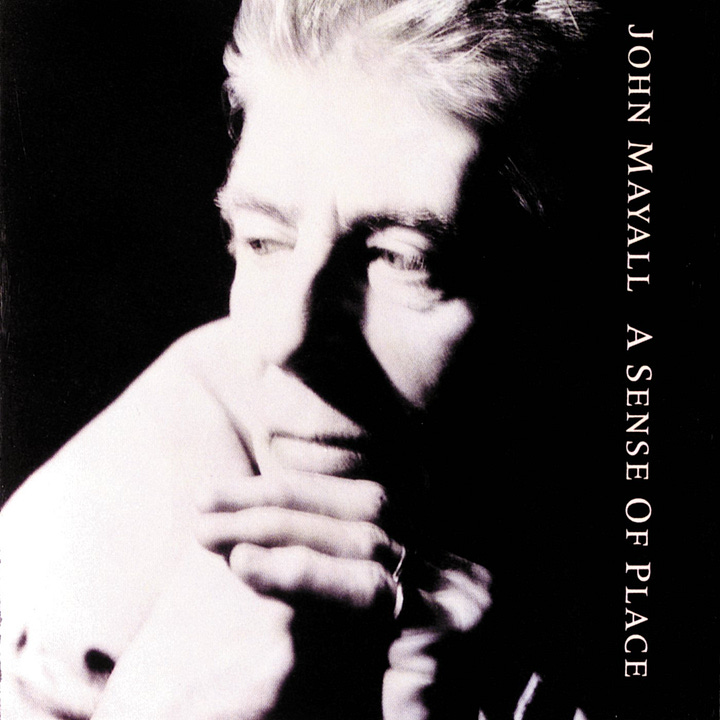
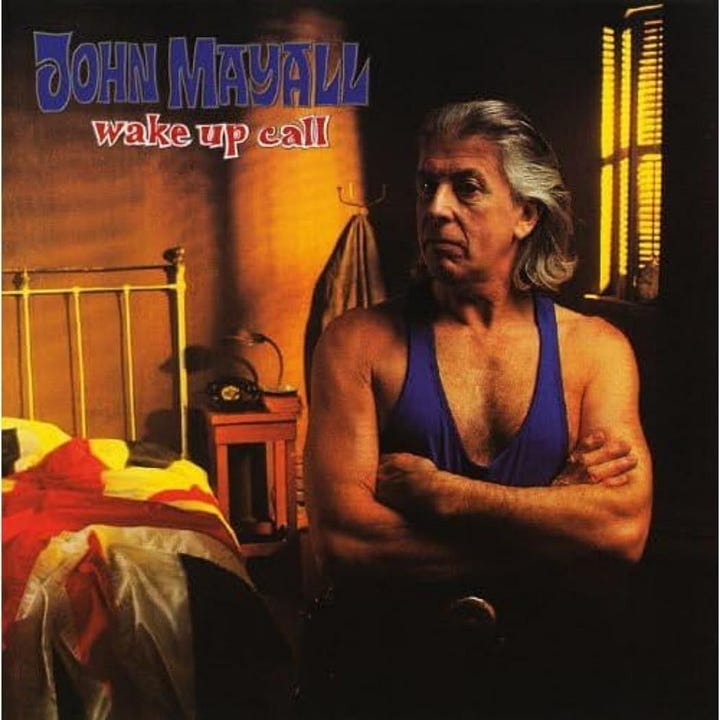
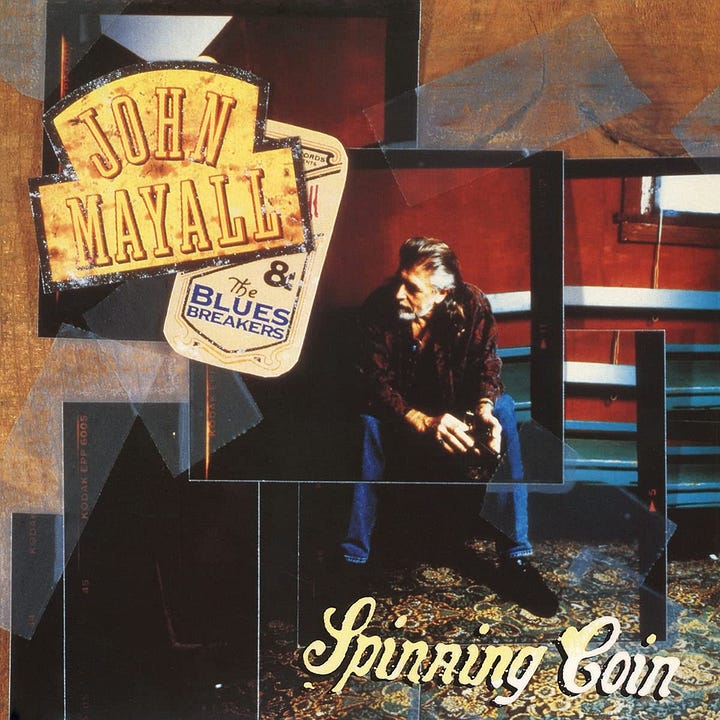
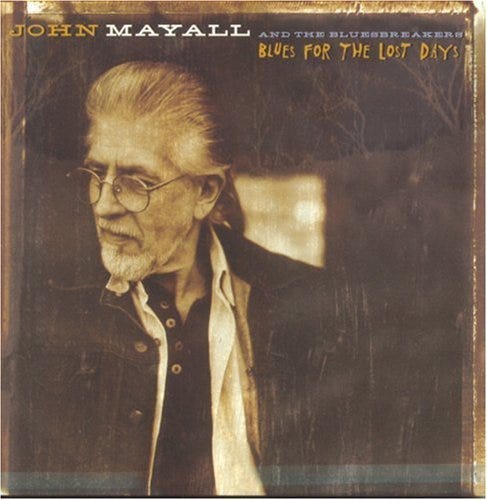
These four, A Sense of Place, Wake Up Call, Spinning Coin, and Blues for the Lost Days, were in hot rotation both at home and on the air when I hosted “The Saturday Night Juke Joint” on an oldies station I programmed in the early aughts. (I scored an interview with him for the show during his press cycle for his 2005 Eagle release, Road Dogs. He was as kind, patient, and engaging as you’d hoped he’d be.)
Chicago Line did a fantastic job of announcing the Bluesbreakers’ return, with Bobby Haynes on bass, Joe Yuele on drums, and the double-guitar whammy of Coco Montoya and Walter Trout. A Sense of Place, however, was a bit more adventurous. Trout was out, but Sonny Landreth hopped on board, fresh from his stint with John Hiatt and the Goners, and added his inimitable slide to the proceedings. Meanwhile, RS Field’s production revealed the roots rock and swampy side of the Bluesbreakers as they tackled songs from Wilbert Harrison and J.B. Lenoir to Don Nix, Mayall, Landreth (a definitive take on his “Congo Square”), and JJ Cale.
Wake Up Call added a host of guests from former Bluesbreaker Mick Taylor and Buddy Guy to Albert Collins and Mavis Staples, who practically burns down the studio with her turn on the title track. Songs chosen from Chris Smither (the fierce opener, “Mail Order Mystics”), Tony Joe White (a faithful “Undercover Agent for the Blues”), Junior Wells (“I Could Cry” with Guy), and Johnny Neel & Warren Haynes (“Maydell”, recorded over a decade before the Allman Brothers’ version) added up to Mayall’s best overall album of the decade.
Spinning Coin, Blues for the Lost Days, and Padlock on the Blues (1995, ‘97, and ‘99 respectively) have a handful of highlights (including, on Spinning Coin, Mayall’s take on David Grissom’s “What Passes for Love” that Grissom would later record with his band Storyville - more on them soon), even if they aren’t that much different from each other. Although Montoya rejoined the Bluesbreakers for Padlock, Coin and Lost Days are most notable for introducing Texas-born Buddy Whittington to us. To wit:
Here’s a mixtape of some of the highlights of the 1990’s Bluesbreakers. Fire it up this weekend and celebrate the Godfather of British Blues…


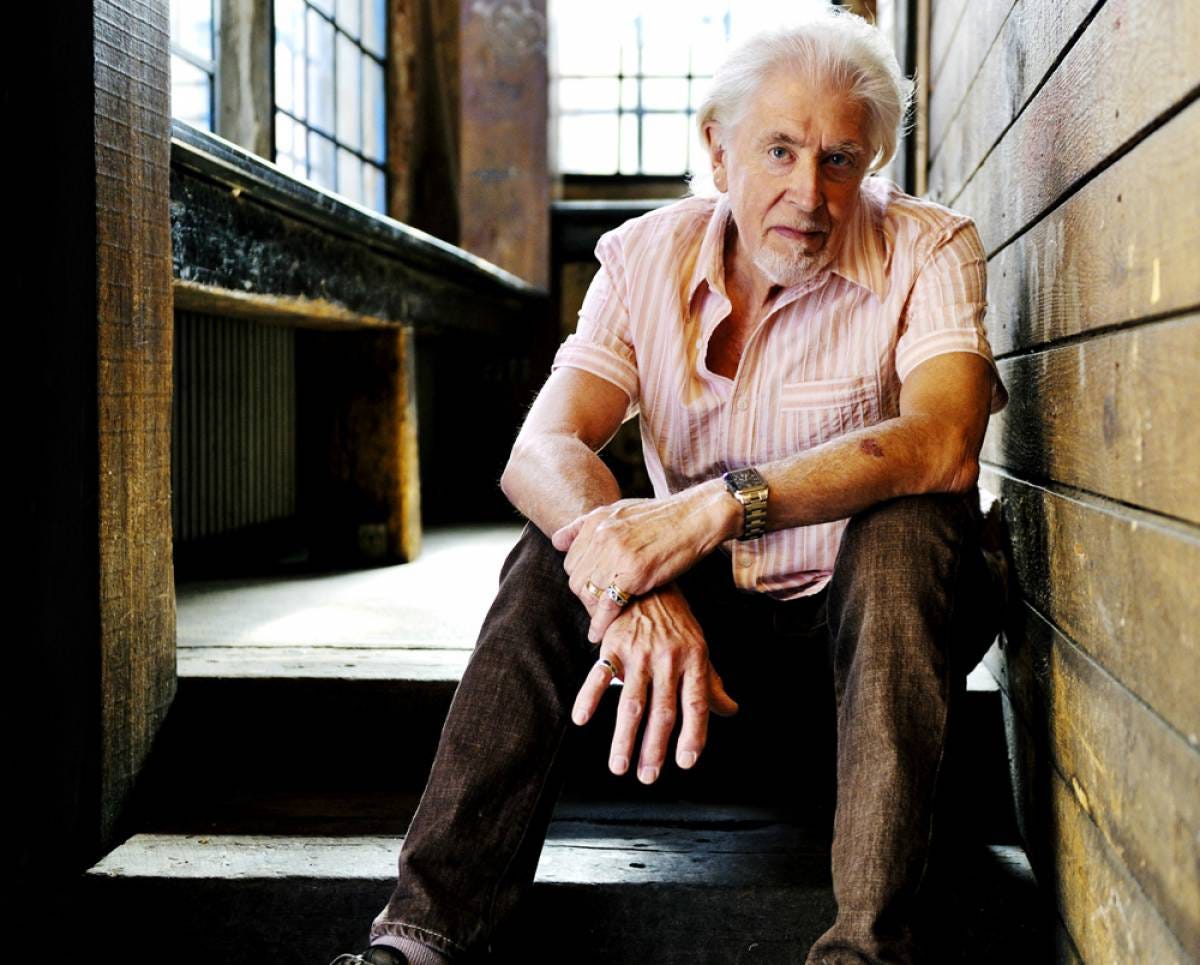
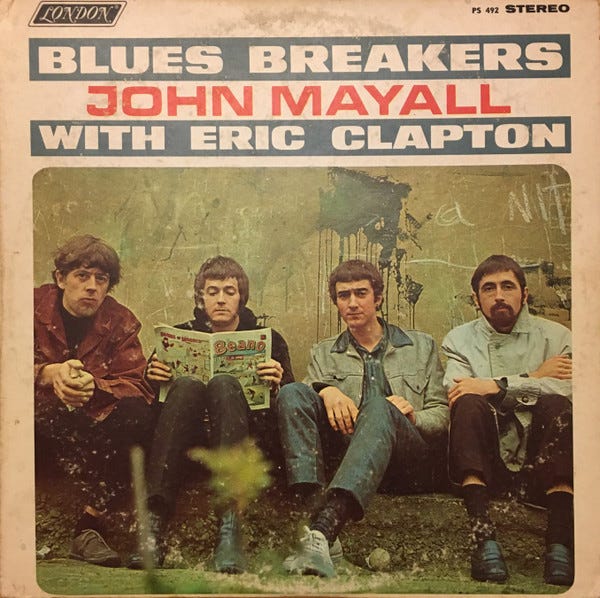
I booked him in this time frame when I was running a venue. I absolutely acknowledge all that he has done. God, we owe him so much for the players he brought through. But, he was an insufferable asshole, as was literally every player who came through the Bluesbreakers. One of the worst nights of my musical life was dealing with Montoya. I know being a blues man in the 90s was hard, but these dudes are a squad I could have done with out.